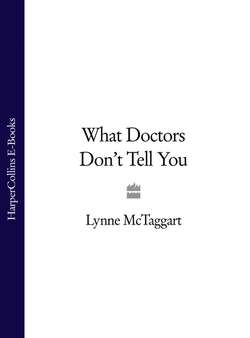Читать книгу What Doctors Don’t Tell You - Lynne McTaggart, Lynne McTaggart - Страница 42
SCREENING AGAINST SCREENING
ОглавлениеSo how can you protect yourself against cancer, or – perhaps more importantly – against the screening tests themselves? Unless you have various risk factors in your family or yourself, there is no good scientific reason why you should engage in regular screening of any sort if you are healthy and have no symptoms. Professor McCormick says the most important early warning for cervical cancer (early enough in most cases for treatment) may be a persistent vaginal discharge or any sort of inter-menstrual bleeding, for instance, after coitus. The likelihood of cervical cancer increases with a woman’s number of sexual partners, whether she smokes, takes the Pill or other prescribed hormones, whether she’s had any sexually transmitted disease or began her sexual life early. If you don’t fall into any of these categories, be wary of your doctor pressurizing you into taking the test, particularly as he now stands to benefit financially from it.
If you do have to have a cervical exam, you might wish to insist on a visual examination of the cervix. In a study of 45,000 women in Delhi, India, where cytological screening is not available, visual exams picked up nearly three-quarters of the cancers found among the sample group, by means of cervical erosions which bled when touched, small growths or, in general, a suspicious-looking cervix.84
As for mammograms, medicine in general has downplayed the importance of regular physical examination of breasts as a diagnostic tool. An advisor to Britain’s chief medical officer admitted that ‘more than 90 per cent of breast tumours are found by the women themselves’.85 In fact, a seven-year study of 33,000 women showed that self-examination could reduce breast cancer deaths by up to one-fifth. Although some lumps detected by mammogram aren’t palpable (able to be felt with the hand or fingers alone), the reverse is true as well. Indeed, one researcher believes that routine screening lulls you into a false sense of security, so that you tend to ignore warning signs such as suspicious lumps.86
If you don’t want a mammogram, make sure to opt for a regular programme of self-examination (your doctor can teach you how to do it) and breast examination by your doctor. If he is unwilling or has limited experience of physical examinations, you might ask to be referred to a clinic where these are routinely carried out, or find another doctor. New research shows that regular self-examination and yearly exams by a trained health professional offer more accurate prediction of cancer than mammograms.87 If you do decide to have a mammogram, shop around. Make sure the equipment is specially designed for mammography and therefore able to give the best image with the least radiation, and ask a lot of questions about the number taken each week, as well as when the machine was last inspected. (Machines should be tested at least once a year.)
